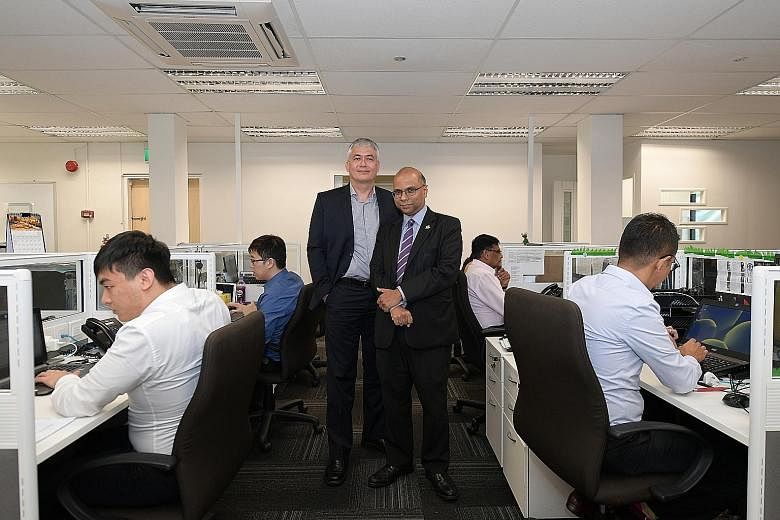More needy people who find themselves tangled up in the law have been able to get help in recent years, with a growing proportion being granted criminal legal aid and more legal clinics springing up.
Yet, the rising cost of living could see more people in the "sandwiched class" who will need more attention.
In an interview with The Sunday Times, Law Society Pro Bono Services (LSPBS) chief executive officer Lim Tanguy described this group as being "too rich for legal aid, but too poor to hire a lawyer".
Last year, 1,777 people were helped under the Criminal Legal Aid Scheme (Clas) - about 75 per cent of the 2,361 applicants. This was a jump from the 25 per cent in 2014.
LSBPS runs 23 legal clinics - compared with just two a decade ago - where anyone can make an appointment to get free legal advice on various issues, including matrimonial and employment law.
Since September 2014, about 7,600 people have been helped at the clinics, said LSPBS. Still, there is scope to extend pro bono help.
"Some people are able to afford legal help for smaller cases, like a personal injury claim, but if it is a High Court trial that may take weeks, that may be beyond the ability of a lot of people," said Mr Lim.
This issue will only grow more acute in time to come. Legal fees are expected to rise with higher inflation, said LSPBS chairman Gregory Vijayendran, who is also the president of LawSoc.
Agreeing, Beacon Law Corporation director Tan Cheow Hung said: "The constantly increasing cost of living means that people will have less disposable income and the demand from the sandwiched class is likely to grow."
Another area that could be re-looked is eligibility for Clas. While effective in ensuring only the needy receive legal aid, its test is a "blunt instrument", said Mr Lim.
Under Clas, only those with a disposable income of not more than $10,000 per annum, among other criteria, can be granted legal aid. This is similar to the Ministry of Law's Legal Aid Bureau, which provides legal aid for civil cases.
The offence they are charged with must also fall under the list of 16 statutes covered under the scheme, which was set up in 1985.
"It is a strict process and not many are caught gaming the system. But unfortunately, there may be some deserving cases that fall through the cracks," said Mr Lim.
In 2015, Clas saw a major enhancement to include assistance for those who are pleading guilty, instead of only those claiming trial. Full-time Clas lawyers were also introduced to support the pool of volunteers, backed by a $3.5 million annual government funding.
But in the future, the Clas scheme could be refined further to also consider the type of legal services required or expand the range of statutes covered.
Mr Vijayendran, however, added that all this has to be done carefully to ensure that lawyers are not "cannibalised" by pro bono work.
LSBPS has its work cut out as it officially began its new journey as a corporatised entity of the Law Society of Singapore (LawSoc) on Oct 7, said Mr Lim.
For the past 10 years, the pro bono services office was a department within the LawSoc. He said corporatisation will allow it to consolidate its initiatives.
Currently, about a third of over 5,000 lawyers here do some form of pro bono work.


